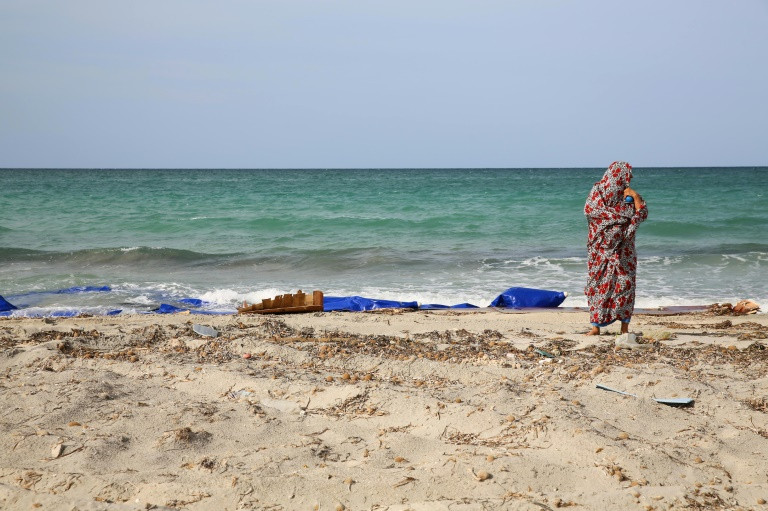
For every five men who drown in the rubber rafts trying to cross the Mediterranean, six women also die, according to a migrant expert
The bodies of 26 women who drowned attempting the perilous crossing from Libya to Europe were brought to Italy on Sunday, where investigators launched a murder inquiry.
A seemingly endless line of black plastic body bags were lowered by crane from a Spanish ship onto the portside in Salerno, southern Italy, where they were placed in coffins and loaded onto waiting hearses.
Twenty-three of the women died on Friday after the inflatable dinghy they were travelling on sank, and their bodies were recovered by the Spanish ship Cantabria, which was operating as part of the EU anti-trafficking force Sophia.
A Sophia spokesman told AFP another three bodies had been discovered during other life-saving operations in the Mediterranean this week, and transferred to the Cantabria as it headed towards Italy with its grim cargo.
There was no immediate explanation as to why all the dead were women, though the crossing is riskier for them.
For every five men who drown in the rubber boats trying to cross the Mediterranean, six women also die, according to migrant expert Sine Plambech, adjunct professor at Columbia University.
They can have poorer swimming skills compared to men and their attempts to save their children often lead to their drowning, as does the heavier clothing they wear, he said
- 'A tragedy' -
"It's a tragedy. The prosecutor's office will begin looking into it immediately," Salerno's prefect Salvatore Malfi said.
"We will need to see whether there are suspects to concentrate on or whether the murder inquiry will proceed against persons unknown," he said.
Investigators would be looking for signs of violence against the women, who are believed to have been Nigerian.
"They were on a dinghy that was also carrying men," Malfi told Italian media in response to fears the doomed vessel may have been a sex-trade boat carrying victims destined for prostitution.
"The sex trafficking routes are different. Loading women onto a boat is too risky, the traffickers would not do it as they could lose all their 'goods' -- as they describe them -- in one fell swoop," he said.
The Cantabria was also carrying 375 migrants rescued from the waves, including 116 women -- nine of whom were heavily pregnant.
According to Italy's interior ministry, more than 111,700 people have reached the country by sea in the first 10 months of 2017, 30 percent down on the previous year.
Despite the drop, traffickers are still sending migrant boats out into the Mediterranean: the International Organization for Migration (IOM) said Friday that more than 2,560 migrants had been saved over four days.
In all, 2,839 people have died while attempting the crossing so far this year, it said.


